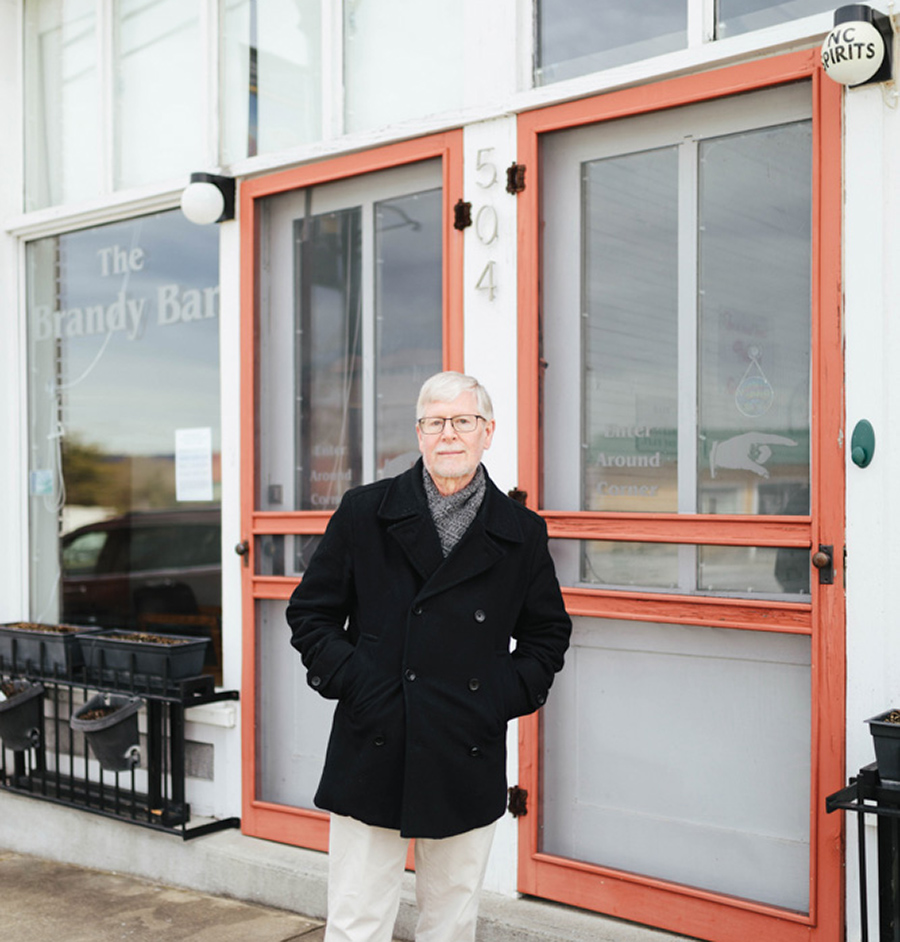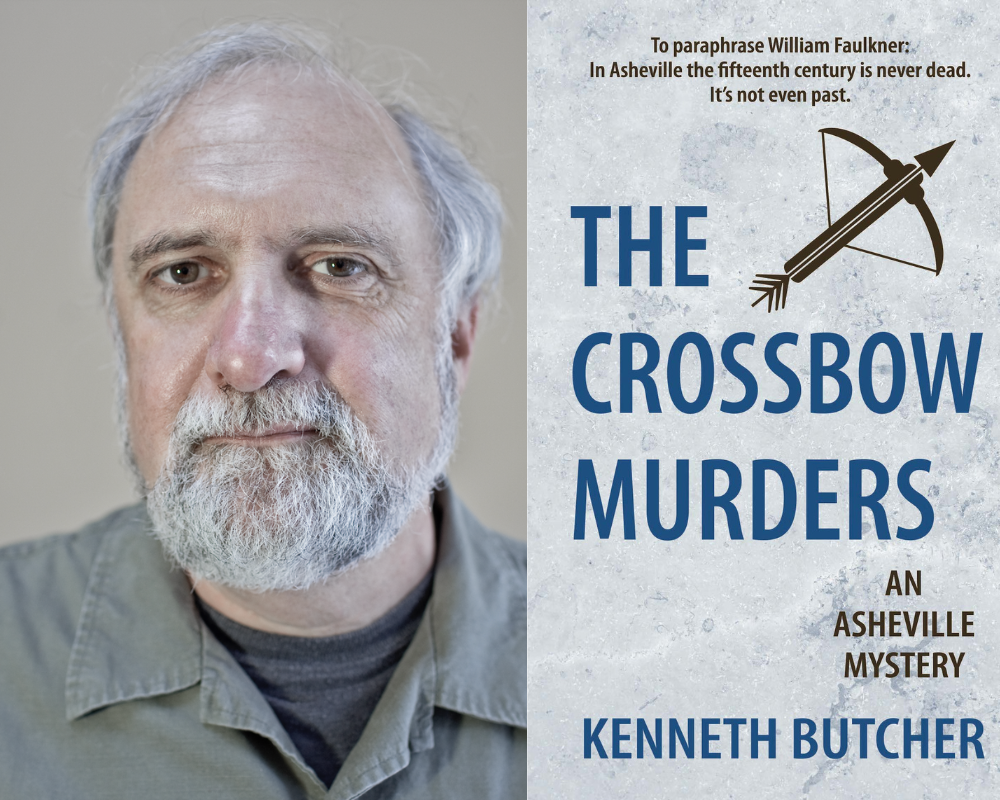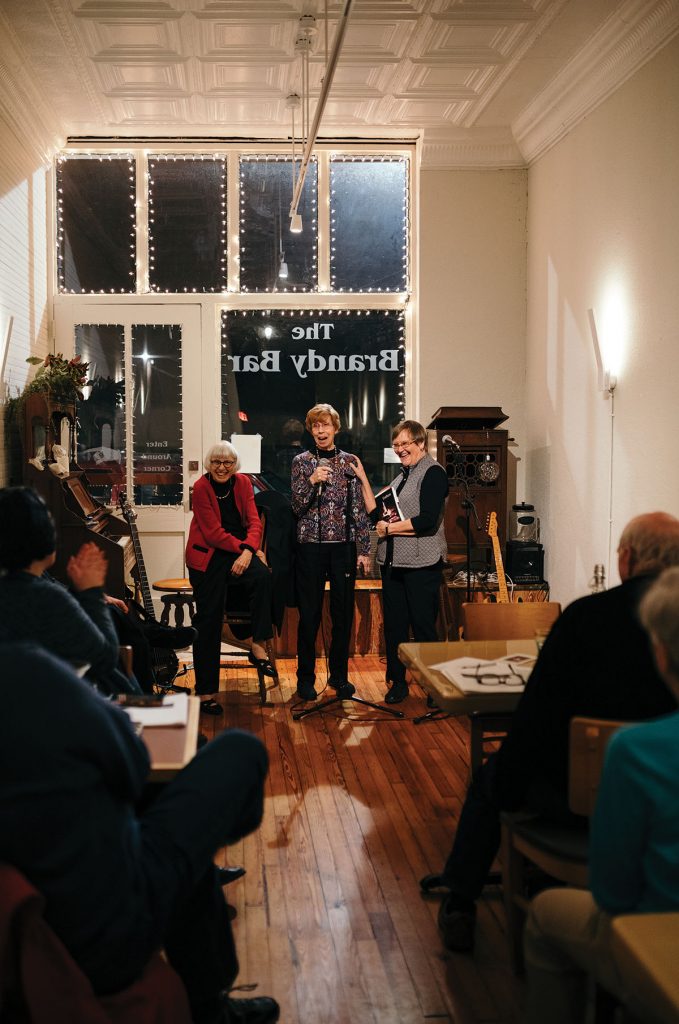
Novelist John Desjarlais’ gritty detective fiction doesn’t flinch. Portrait by Rachel Pressley
Domestic violence. Political corruption. A river overflowing with a local swine factory’s waste. Such elements populate the gritty atmosphere of Hendersonville author John Desjarlais’ latest novel, The Kill Floor (Torchflame Books, 2022). Exposing the darker side of the Midwest soul, the story follows a small-town detective as he investigates the death of an ill-regarded CEO in Illinois’ Sinnissippi County.
Desjarlais is no stranger to noir. While a former English professor, having taught at Kishwaukee College in northern Illinois for 25 years, at his heart he has always been devoted to the tradition of hardboiled detectives in Western storytelling. About his inspirations, Desjarlais says, “I nod to hardboiled PI writers Dashiell Hammett and Raymond Chandler. For police procedurals, it’s Ed McBain and Tana French.” This is despite deep roots as a scholar of the Western canon. His last novel, a Catholic thriller titled Bleeder, features one character studied in Aristotle, another obsessed with Aquinas.

What draws Desjarlais to noir detective fiction? According to the author, it’s the genre’s uniquely American attitude. “It’s a 1920s-’30s reaction to the dainty, ‘brilliant’ detectives of the British Golden Age,” he explains. (Author Agatha Christie was the queen of such novels, sometimes called “cozy mysteries” or “cozies.”) Desjarlais admires American noir for its “muscle, its stylish language, and its honest if gritty realism.”
Readers of The Kill Floor will note a compelling for-the-people ethic that drives the novel’s plot. Never mind the final “whodunit” — the book’s moral villains are the corporate, the spoiled, and the abusers of power. Its hero, Detective Gordon, is an unadorned everyday man dedicated to his work. Desjarlais lends a sympathetic lens to the poor, with the story beginning in a trailer park full of downtrodden factory workers and their families.
Behind the noir, readers will notice that the Midwest still has a profound place in the former professor’s heart. The book meditates on both the region’s pervasive melancholy and its glimpses of beauty. On one hand, Desjarlais perceives the banality of a flat rural landscape: “A fetid brown muck, foaming pink at the edges, lapped at the gravelly access road where it sloped into a soggy cornfield.” Later on in the book, he describes a similar scene but with reverence: “Once the brassy rind of the sun showed, the prairie fleabane glittered and the green sea of corn gilded.”
However, nowadays, despite his Midwestern roots, Desjarlais seeks to also draw inspiration from his new home, the mountains of Western North Carolina. He lists Ron Rash, David Joy, and Wiley Cash as some regional writers who have lately inspired his work.
“There’s a rich literary tradition here,” states Desjarlais. “I’ve met many fine poets and my work — both fiction and poetry — has become more lyrical.”
John Desjarlais, Hendersonville, johndesjarlais.com. The North Carolina Writers Network hosts Desjarlais as their monthly featured author at The Brandy Bar (504 East 7th Ave., Hendersonville) on Wednesday, March 8, at 7pm (doors open at 6:30pm). The author’s presentation will be followed by a writers’ open mic. For more information, see “The Brandy Bar + Cocktails” on Facebook. (The Kill Floor is available at Malaprop’s in Asheville, Highland Books in Brevard, and Blue Ridge Books in Waynesville.)



